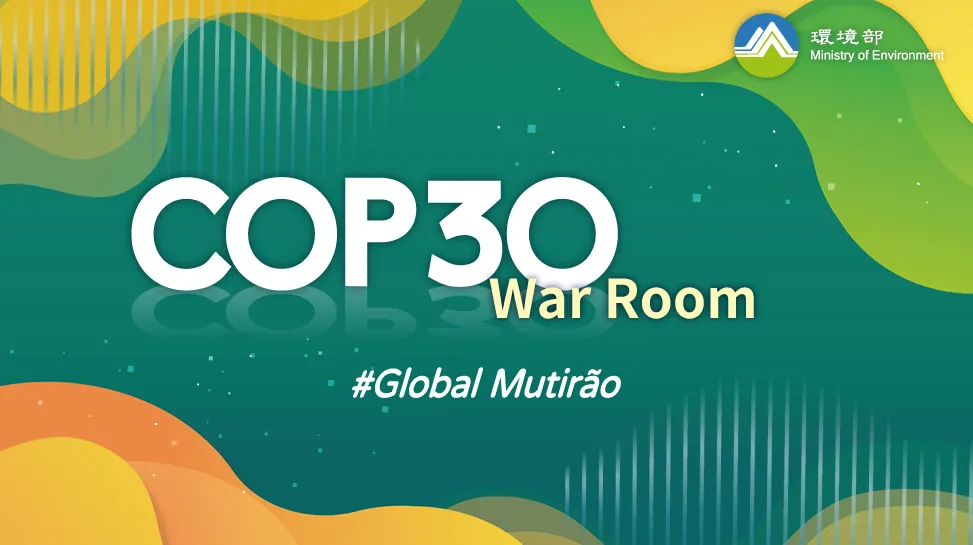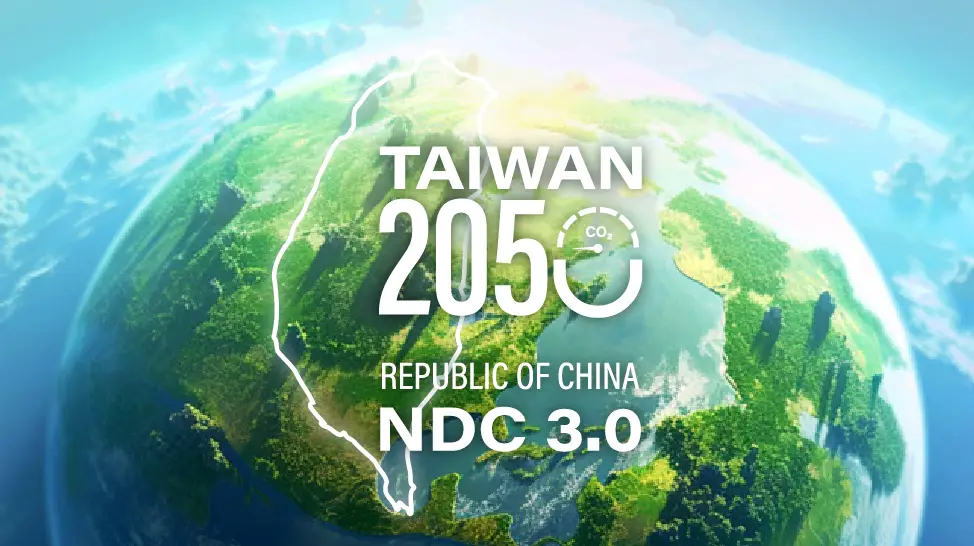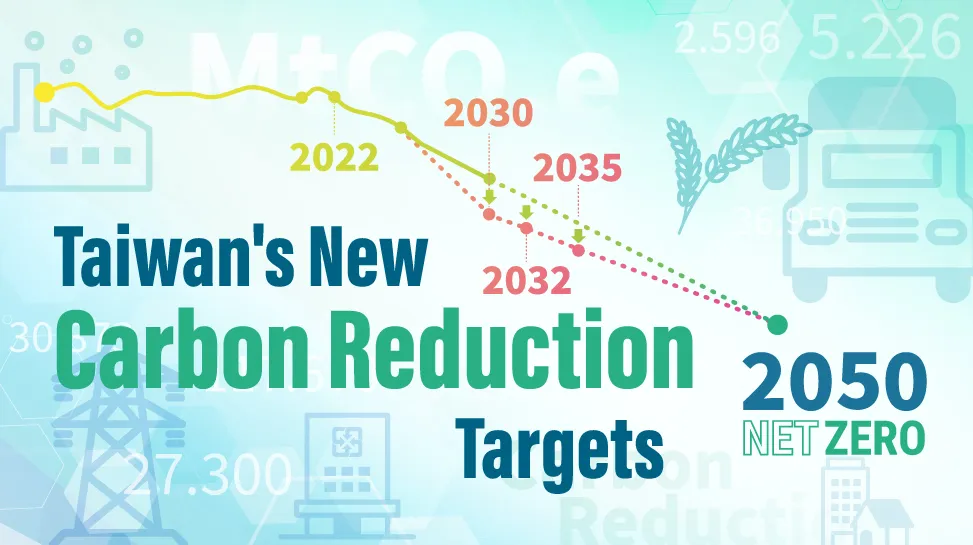As global warming intensifies and extreme weather events become more frequent, the international community is accelerating efforts in carbon reduction and adaptation. The United Nations' “2024 Sustainable Development Goals Report” noted that although global climate financing increased by 30% since 2021, reaching US$115.9 billion in 2022 and fulfilling the developed countries' annual commitment of US$100 billion, global greenhouse gas emissions in the same year still hit a record high of 57.4 billion metric tons of CO₂ equivalent. To limit the rise to within 1.5°C, emissions must be reduced by 42% before 2030. However, based on current national policies, global temperatures are projected to rise by more than 3°C, underscoring the severe challenge of emission reduction.
Despite not being able to participate in the United Nations Framework Convention on Climate Change (UNFCCC) mechanisms as a signatory, Taiwan upholds the principle of “common but differentiated responsibilities” and responds to global climate action. Through cross-sector collaboration among central and local governments, industries, academia, and civil society, Taiwan continues to expand exchanges, engage in climate negotiations, promote technical and financial cooperation, and share its experiences in energy transition, environmental protection, and net zero implementation.
By participating in climate conventions, hosting international forums, responding to global climate evaluations, promoting partnerships, and sharing information, Taiwan demonstrates its ongoing commitment and tangible contributions to global climate governance. These efforts strengthen Taiwan's visibility and influence in international climate action, advancing together with the world toward a sustainable, low-carbon, and resilient future.
Keeping abreast of climate convention progress
To address the global challenges of climate change, the UNFCCC and the Paris Agreement continue to drive key decisions and actions through the annual Conference of the Parties (COP), forming the core process of global climate governance.
Active participation in climate conventions
Climate change is redefining the pulse of global development and has become a core issue affecting national security, economic transformation, and social resilience. In facing this shared challenge, Taiwan, as a responsible member of the international community, proactively engages with the UNFCCC mechanisms and continues to take concrete actions to respond to global carbon reduction goals with foresight and determination.
Comparison of International Climate Actions
In pursuit of the shared goal of global net zero emissions, countries around the world are advancing carbon reduction policies and energy transitions to implement climate actions and enhance international cooperation. To promote transparency and policy benchmarking, various international climate indices and databases have been established to track progress in emissions management, energy use, and policy implementation.
Expanding international cooperation and exchange
As Taiwan advances toward its 2050 net zero transition, it continues to deepen international collaboration under the guiding principle of “Connecting the World for Sustainability.” Taiwan works with global partners to promote climate action and green transformation.









